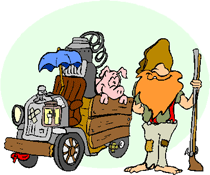Here are some more useful words connected to health.
Illnesses
ache - dolor (earache / headache / stomachache / toothache / backache)
cold - resfriado
cough - tos
flu - gripe
heart attack – ataque cardíaco
infection – infección
disease - enfermedad
pain - dolor
Minor Injuries
bruise - magulladura
cut - corte
graze - raspadura
wound - herida
Treatment
bandage - vendaje
check-up – chequeo
dose (of medicine) - dosis
drugs – fármacos, medicamentos, drogas
injection - inyección
medicine - medicina
operation - operación
pain-killer - analgésico
pill / tablet – píldora / pastilla
a plaster / plaster – esparadrapo, tirita / escayola
Verbs
catch (to catch a cold)
cure (to cure an illness)
heal (the wound on your leg is healing nicely)
hurt (my stomach hurts)
injure (I injured my arm in a skiing accident)
prescribe (the doctor prescribed antibiotics)
treat (I’m being treated under the national health)
Adjectives
fit (I’ve been feeling very fit since I started running every morning)
ill (I always feel ill after 8 beers and a couple of whiskies)
sick (I feel sick / I have been sick twice this morning)
vomit (I have vomited twice this morning)
healthy (I’m normally very healthy)
unhealthy (You live a very unhealthy lifestyle)
painful (It’s painful when I cough)
unwell (my mother is very unwell at the moment)
well (I feel very well, thank you)
Christmas Vocabulary
Días festivos
Nochebuena - Christmas Eve
Día de navidad - Christmas Day
Diciembre 26 – Boxing Day
Año Nuevo - New Year
Nochevieja - New Year's Eve
El día de año nuevo - New Year's Day
La Noche de Reyes - Twelfth Night
Regalo de navidad - Christmas present
Adornos de Navidad - Christmas decorations
El muérdago - Mistletoe
El acebo - Holly
Flor de Navidad - Poinsettia
La comida de Navidad - Christmas dinner
Una tarjeta de Navidad - A Christmas card
Árbol de navidad - Christmas tree
El espumillón - Tinsel
Un calendario de Adviento - Advent calendar
Un pesebre - A crib
La misa del gallo - Midnight Mass
Un villancico - Christmas carol
Los Reyes Magos - The Three Kings, the Three Wise Men
¡Feliz Navidad! / ¡Felices Pascuas! - Happy Christmas! / Merry Christmas!
¡Felices fiestas! - Season's greetings!
¡Feliz Navidad y Próspero Año Nuevo! - Merry Christmas and a Happy New Year!
¿Qué te regalaron para Navidad? - What did you get for Christmas?
Un belén (Belén = Bethlehem) - A nativity scene
Los pastores - Shepherds
Un burro - A donkey
Papá Noel - Father Christmas
COMIDA - FOOD
Un tronco de Navidad - A Christmas yule log
Un pastel de Navidad - A Christmas cake
El pavo - Turkey
Una cesta de Navidad - A Christmas hamper
GET
The verb 'to get' is used in many different ways in English and it can get (become) confusing at times.
Here are some of the meanings of get together with examples and Spanish translations:
to get - conseguir, obtener, comprar, lograr, ganar, sacar
Where did you get that computer?
¿Dónde conseguiste ese ordenador?
We get our cheese from the local market.
Compramos el queso en el mercado local.
I’ve just got an e-mail message from Pepito.
Acabo de recibir un mensaje de correo electrónico de Pepito.
to get - contestar o atender (el teléfono, la puerta)
The phone is ringing. Will you get it please?
Está sonando el teléfono. ¿Puedes contestar por favor?
to get – llegar
What time did you get home?
¿A qué hora llegaste a casa?
Can I get there by train?
¿Puedo llegar allí en tren?
to get + adjective - hacerse, volverse, ponerse
Here are some of the meanings of get together with examples and Spanish translations:
to get - conseguir, obtener, comprar, lograr, ganar, sacar
Where did you get that computer?
¿Dónde conseguiste ese ordenador?
We get our cheese from the local market.
Compramos el queso en el mercado local.
I’ve just got an e-mail message from Pepito.
Acabo de recibir un mensaje de correo electrónico de Pepito.
to get - contestar o atender (el teléfono, la puerta)
The phone is ringing. Will you get it please?
Está sonando el teléfono. ¿Puedes contestar por favor?
to get – llegar
What time did you get home?
¿A qué hora llegaste a casa?
Can I get there by train?
¿Puedo llegar allí en tren?
to get + adjective - hacerse, volverse, ponerse
| to get better (mejorar) to get worse (empeorar) to get sick (enfermar) to get angry (enfadarse) to get fat (engordar) get dark (oscurecer) to get old (envejecer) to get rich (enriquecerse) to get cold (enfriarse) to get wet (mojarse) to get hungry (ponerse hambriento) | to get full (llenarse) to get nervous (ponerse nervioso) to get well (mejorar, ponerse bien) to get upset (disgustarse) to get bald (volverse calvo) to get happy (ponerse contento) get sleepy (ponerse somnoliento) to get thirsty (ponerse sediento) to get hot (ponerse caluroso) get late (hacerse tarde) to get mad (enojarse) |
Your paella is getting cold.
Se te está enfriando la paella.
If you keep on eating chocolate, you’ll get fat.
Si sigues comiendo chocolate vas a engordar.
It is getting dark. I think we should leave soon.
Está oscureciendo. Pienso que deberíamos partir pronto.
What time are we going to have dinner? I’m getting hungry.
¿A qué hora vamos a cenar? Me está agarrando hambre.
to get + past participle - hacerse, volverse, ponerse
Se te está enfriando la paella.
If you keep on eating chocolate, you’ll get fat.
Si sigues comiendo chocolate vas a engordar.
It is getting dark. I think we should leave soon.
Está oscureciendo. Pienso que deberíamos partir pronto.
What time are we going to have dinner? I’m getting hungry.
¿A qué hora vamos a cenar? Me está agarrando hambre.
to get + past participle - hacerse, volverse, ponerse
| to get drunk (emborracharse) to get dressed (vestirse) to get bored (aburrirse) to get worried (preocuparse) to get ready (prepararse) to get crowded (llenarse de gente) to get tired (cansarse) to get confused (confundirse) | to get married (casarse) to get engaged (comprometerse) to get excited (emocionarse/entusiasmarse) to get depressed (deprimirse) to get scared (asustarse) to get finished (terminar) to get lost (perderse) |
First they got engaged and then they got married.
Primero se comprometieron y después se casaron.
They got so bored that they did not stay for the end of the film.
Se aburrieron tanto que no se quedaron hasta el final de la película.
That’s enough wine. You’ll get drunk.
Basta ya con el vino. Vas a emborracharte.
Primero se comprometieron y después se casaron.
They got so bored that they did not stay for the end of the film.
Se aburrieron tanto que no se quedaron hasta el final de la película.
That’s enough wine. You’ll get drunk.
Basta ya con el vino. Vas a emborracharte.
Holidays / Vacations

Empleamos holiday para referirnos a las vacaciones.
to go on holiday / ir de vacaciones
the school holidays / las vacaciones escolares
holiday season / temporada de vacaciones
the school holidays / las vacaciones escolares
holiday season / temporada de vacaciones
En Gran Bretana vacation se utiliza sobre todo para referirse a las vacaciones de las universidades y los tribunales de justicia. En el resto de los casos, holiday es la palabra mas corriente. En Estados Unidos vacation tiene un uso mas generalizado y se emplea de manera más habitual para referirse a las vacaciones estivales.
More driving vocabulary
to pick up = buscar, recoger: 
I'll pick you up at the airport = te iré a recoger al aeropuerto
to drop off = dejar:
I'll drop you off at your house = te dejaré en casa
to give somebody a lift = llevar a alguien en coche:
I'll give you a lift - Te llevaré en coche
Did you come by car?
Let’s go for a drive
Did you bring the car?
Yes, I drove here. Drive – drove – driven
Slow down
Speed up – go faster - Put your foot down – ¡Más rápido!

I'll pick you up at the airport = te iré a recoger al aeropuerto
to drop off = dejar:
I'll drop you off at your house = te dejaré en casa
to give somebody a lift = llevar a alguien en coche:
I'll give you a lift - Te llevaré en coche
Did you come by car?
Let’s go for a drive
Did you bring the car?
Yes, I drove here. Drive – drove – driven
Slow down
Speed up – go faster - Put your foot down – ¡Más rápido!
Sign
1 signo: What sign of the zodiac are you? / ¿De qué signo (del zodiaco) eres?
2 (a) señal
a road sign / una señal de trafico
(b) letrero, cartel
3 sign (of something): indicio (de algo):
There are few/no signs of change. No hay indicios de cambio
2 (a) señal
a road sign / una señal de trafico
(b) letrero, cartel
3 sign (of something): indicio (de algo):
There are few/no signs of change. No hay indicios de cambio
LOS VERBOS IRREGULARES EN INGLÉS.
Los verbos regulares forman el pasado y el participio de pasado agregando la terminación "-ed". En el caso de los verbos irregulares esta norma no se cumple.
El pasado y el participio de pasado se forman de manera irregular (de ahí su nombre) no siguiendo ninguna regla. Para conocer por tanto la forma de pasado y de participio de pasado de un verbo irregular deberemos aprenderla para cada uno. En total existen unos doscientos verbos irregulares en inglés pero algunos de ellos son de uso muy frecuente por lo que tendremos muchas oportunidades de aprenderlos de forma sencilla.
Por otra parte, piensa que afortunadamente en inglés cada verbo irregular tiene una sola forma para el pasado simple (y no múltiples formas como es el caso del español).
Ejemplo. El pasado irregular de "drink" (beber) es "drank"
I drank, you drank, he/she/it drank, we drank, they drank
En cambio en español....
Yo bebí, tú bebiste, él/ella bebió, nosotros bebimos, vosotros bebisteis, ellos/as bebieron
(imaginad el problema que tienen los ingleses cuando aprenden los verbos españoles...)
